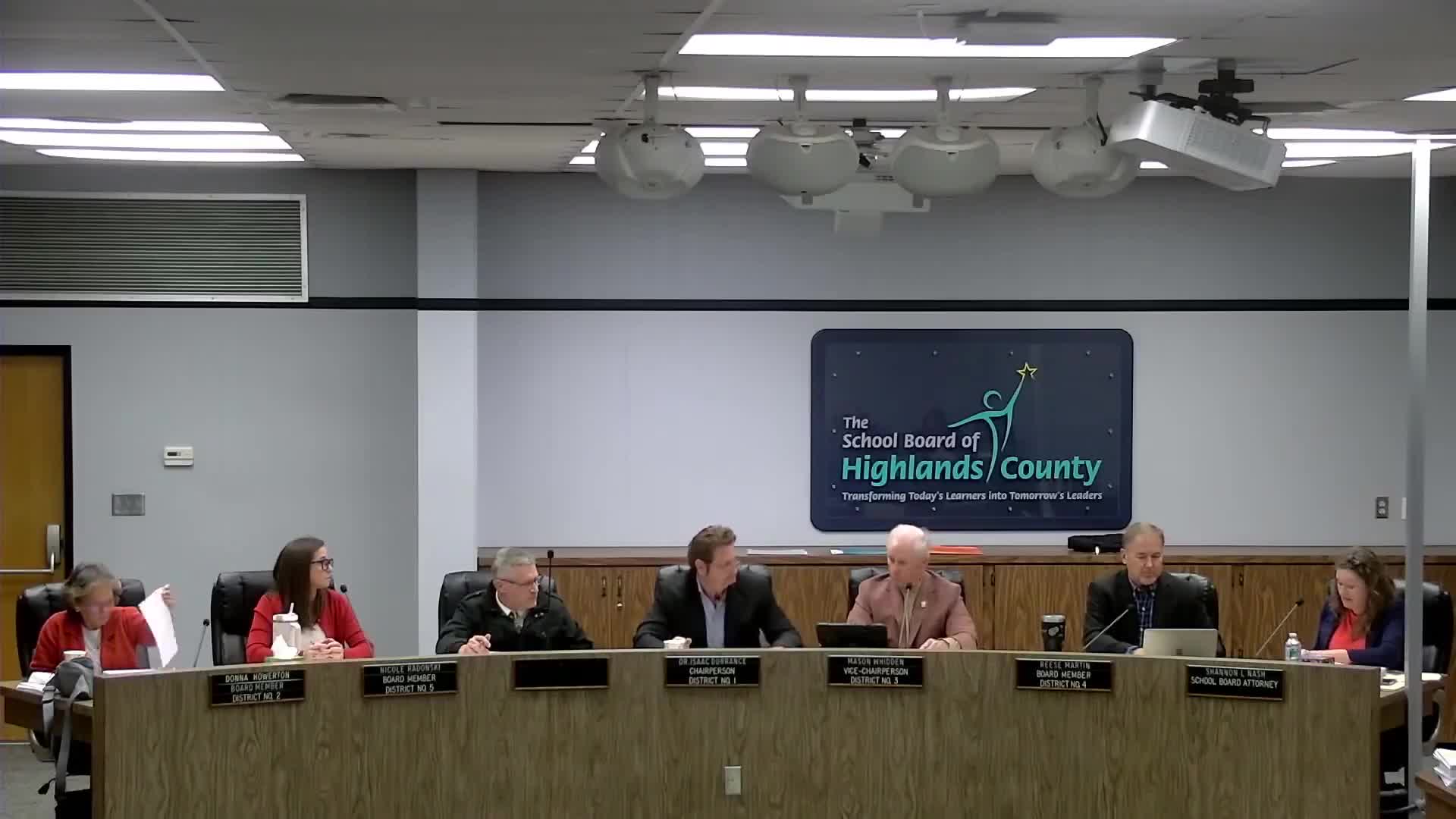School board reviews broad package of policy changes including ECGs for athletes, AED protocols and volunteer screening
Get AI-powered insights, summaries, and transcripts
Subscribe
Summary
District staff reviewed a broad package of recommended rule‑development changes at a school board workshop on Nov. 12, asking the board to forward the policies for formal rule development rather than taking final votes.
District staff reviewed a broad package of recommended rule‑development changes at a school board workshop on Nov. 12, asking the board to forward the policies for formal rule development rather than taking final votes.
"The policies that you have in front of you are being recommended for rule development," said Miss Nash, district staff member leading the presentation. The packet covered dozens of policies with revisions to align district rules to recent Florida law changes and administrative guidance.
Key changes highlighted by staff include adding "stolen valor" language across multiple ethics policies so that knowingly misrepresenting military service for material gain is an ethical violation for board members, administrators and support staff; updated background‑check and employment rules that require a clear and conspicuous link to the Agency for Health Care Administration clearinghouse on district job postings; and new training and emergency‑response requirements in health policies.
On student health and athletics, staff said the district will require an electrocardiogram for students before participating in high‑school athletics except in limited situations. Board members asked about cost and logistics; one board member said community clinics and hospital partners historically provided screenings and had kept costs low. "I think it's a wonderful idea to protect these students," a board member said in support of the ECG requirement. Staff noted the law will not take effect until the 2026–27 school year, and district forms and agreements are being updated.
The district also proposed a policy to prohibit personal transportation devices powered by mechanical means — the category cited would cover electric scooters and similar devices — from campus and for travel to and from school because of safety risks. Miss Nash said the policy would still allow exceptions required by law for students with disabilities and vest administrator discretion for limited cases.
On lifesaving equipment, Miss Blackman, district staff overseeing AEDs and safety checks, described a manufacturer‑supported monitoring program and monthly unit checks, including pad and battery expiration monitoring. "We have a very, manufacturer specific monitoring that's done monthly at each one of the campuses," she said, and confirmed that every elementary school has at least one AED. She told the board an AED had recently helped save a student's life at a district school.
Volunteer screening was another focus: staff said volunteers who work directly with students undergo level‑2 background checks and that district onboarding paperwork documents the requirement. Board members raised operational concerns about large volunteer events and chaperone arrangements; staff said regular volunteers' background checks are district funded and that field‑trip volunteers remain supervised under existing procedures.
Other technical and housekeeping changes include renaming "in‑service training" to "professional learning and training," extending certain instructional‑material purchase cycles, clarifying that program funds remain under board control even when administered through grants, and updating nondiscrimination contact information in the student progression plan from "Tim Leesburg" to "John Verde."
No formal motions or votes were recorded during the workshop; staff characterized the session as presentation and discussion in preparation for later formal rule‑making steps. The board solicited clarifying changes and corrections (including a typographical fix staff agreed to make) and left policy adoption for future action.
The district staff said they will return with finalized language and supporting forms where needed, and the board closed the workshop after an opportunity for public comment.
